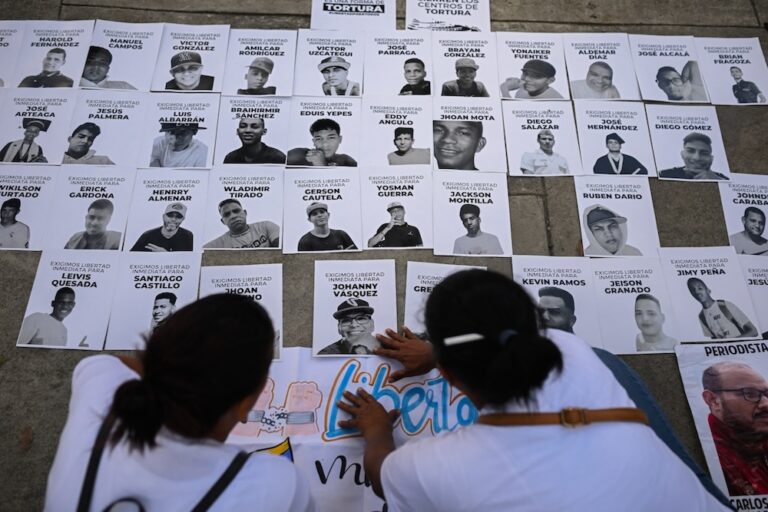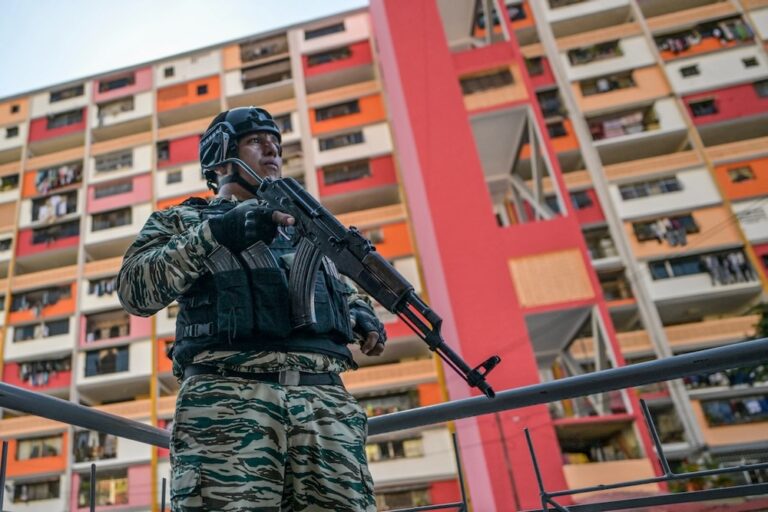(IPYS/IFEX) – A journalist was assaulted in Valencia, another received a death threat in Carabobo, and President Hugo Chávez accused Globovisión television station of urging that he be assassinated, amid reactions to the non-renewal of the frequency concession used by television station Radio Caracas Televisión (RCTV). On 28 May 2007, photographer Wilfredo Hernández, of Valencia’s […]
(IPYS/IFEX) – A journalist was assaulted in Valencia, another received a death threat in Carabobo, and President Hugo Chávez accused Globovisión television station of urging that he be assassinated, amid reactions to the non-renewal of the frequency concession used by television station Radio Caracas Televisión (RCTV).
On 28 May 2007, photographer Wilfredo Hernández, of Valencia’s newspaper “El Carabobeño”, sustained slight injuries in Carabobo state, central Venezuela, while he was covering the confrontation between demonstrators who support Televisora Social Venezolana (TEVES), the station created to replace RCTV, and students who were protesting the government’s decision to not renew RCTV’s frequency concession.
According to Hernández, the TEVES followers assaulted the students and, when they realized he was taking photographs of the incident, threw bottles and rocks at him, injuring him slightly.
On 29 May, President Chávez accused Globovisión television station of inciting people to disorder and his assassination, and warned that he will initiate proceedings against this and other media outlets that, in his opinion, promote instability in the country.
He also described the television actors and journalists who, through Globovisión, criticized the decision on of RCTV, as “fascists”.
The president ordered the National Commission for Telecommunications (CONATEL) and the Minister of Telecommunications and Information Technology, Jesse Chacón, to keep a close watch on the contents broadcast by the media.
Globovisión is critical of the government and gave extensive coverage to the end of broadcasting by RCTV and the marches showing solidarity with the station that were organized in several regions of the country.
IPYS declares its concern regarding the president’s warnings, which may lead to self-censorship among the media reporting about the RCTV case.
Also on 29 May, reporter Darwin Rosales received a death threat on his mobile phone. Rosales is a correspondent for RCTV in the State of Carabobo, central Venezuela. It is thought that the threat may have been in response to his promotion of activities on RCTV’s behalf, since the non-renewal of the station’s concession was announced. Rosales revealed that during the threatening call, he was told that a warrant for his arrest for inciting people to disorderly conduct is ready. The reporter continues to work for RCTV, as the station has continued broadcasting information via Internet.


